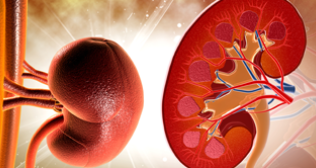
Glomerular Disease: Types, Precautions, and Treatment
Introduction
The glomerulus, a tiny yet vital component of our kidneys, is crucial in maintaining our overall health. This article will delve into the intricacies of the glomerulus, explore common diseases affecting it, discuss precautions, and shed light on viable treatment options.
What is Glomerulus?
The glomerulus is a microscopic structure within the nephrons in the kidneys. It resembles a tuft of capillaries encased within specialized cells called podocytes. Located in the renal cortex, the glomerulus is the initial filtration site for blood entering the nephron.
Glomerulus Function
- Filtration: Hydrostatic pressure forces plasma through the capillary walls as blood flows into the glomerulus. This process filters out water, electrolytes, and waste products.
- Ultrafiltrate Formation: The filtered fluid, known as ultrafiltrate, contains essential substances like glucose, amino acids, and ions. Simultaneously, larger molecules (such as proteins) remain in the blood.
Common Glomerular Diseases
Glomerular disease encompasses a range of uncommon immune-related conditions that specifically affect the glomeruli, the kidney’s filtration units. If these disorders are not treated, they have the potential to advance to chronic kidney disease and irreversible kidney failure.
- Glomerulonephritis: This condition, alternatively referred to as nephritis or nephrotic syndrome, represents a group of renal disorders that affect the glomeruli, leading to compromised blood filtration. Acute glomerulonephritis develops suddenly, often following infections, requiring prompt treatment to prevent kidney damage. Their chronic form progresses gradually and can lead to irreversible kidney impairment.
- Diabetic Nephropathy: This condition involves progressive kidney damage due to prolonged high blood sugar levels. Timely identification and effective diabetes management are vital to control disease progression and preserve kidney function.
- Focal Segmental Glomerulosclerosis (FSGS): It is characterized by scarring in specific glomerular segments, leading to proteinuria and impaired kidney function. The treatment for this condition targets the underlying causes and may include medications to reduce protein loss.
- Membranous Nephropathy: This condition involves the thickening of the glomerular basement membrane, resulting in protein leakage into urine, known as proteinuria. Managing this condition requires immunosuppressive therapies to prevent progressive kidney damage.
- Minimal Change Disease: This condition primarily impacts children with nephrotic syndrome. It involves heightened renal membrane permeability and loss of protein, mainly albumin, due to glomerular filtration barrier (GFB) damage.
Symptoms of Glomerular Diseases
Individuals with glomerular diseases present diverse clinical characteristics. Some of them include:
- Blood in urine
- Proteinuria or protein leakage
- Hypertension
- Hypoalbuminemia
- Peripheral edema
- Chest pain or shortness of breath
- Tenderness, swelling, and pain in one leg
Causes
The causes of glomerular diseases are diverse and can include:
- Immune System Disorders: Conditions like lupus and IgA nephropathy, where the immune system mistakenly attacks the glomeruli, can lead to glomerular diseases.
- Infections: Some infections, like strep throat or bacterial endocarditis, can lead to glomerulonephritis.
- Diabetes: Elevated blood glucose levels can damage the glomeruli over time, leading to diabetic nephropathy.
- Hypertension: Chronic high blood pressure can strain the glomeruli, causing long-term damage.
- Genetic Factors: Some glomerular diseases, such as Alport syndrome, can be inherited.
- Drug Toxicity: Certain medications and toxins can damage the glomeruli, leading to kidney dysfunction.
- Systemic Diseases: Conditions like vasculitis or amyloidosis can affect the glomeruli as part of their systemic effects.
Precautions for Glomerular Health
Maintaining glomerular health involves several precautions, including:
- Control Blood Pressure: Hypertension strains the glomeruli. Regular monitoring and lifestyle modifications are essential.
- Manage Diabetes: Maintain stable blood sugar levels to prevent glomerular damage.
- Hydrate: Proper hydration ensures optimal glomerular function.
- Avoid Nephrotoxic Substances: Certain medications and toxins can harm the glomeruli.
- Exercise Regularly: Engage in regular physical activity to help maintain overall health and manage weight.
- Avoid Smoking and Alcohol: Both smoking and excessive alcohol consumption can negatively impact kidney function.
- Manage Stress: Extreme stress can contribute to hypertension and other conditions that affect kidney health, so practice stress-reducing activities.
- Follow Medication Instructions: Take medications as healthcare providers prescribe them and discuss potential kidney-related side effects.
- Regular Health Check-ups: Visit healthcare professionals regularly for check-ups and screenings to detect any kidney-related issues early.
Treatment Approaches
- Medication: Depending on the specific glomerular disease, drugs such as ACE inhibitors, angiotensin receptor blockers (ARBs), and immunosuppressants may be prescribed.
- Dietary Modifications: Limit protein intake and monitor sodium and potassium levels.
- Dialysis and Transplantation: Dialysis or kidney transplantation becomes necessary in severe cases.
The glomerulus, though small, plays an outsized role in our well-being. Understanding its function, recognizing warning signs, and taking proactive steps can safeguard our kidney health and vitality.
Popular Searches :
Hospitals: Cancer Hospital in Delhi | Best Heart Hospital in Delhi | Hospital in Amritsar | Hospital in Ludhiana | Hospitals in Mohali | Hospital in Faridabad | Hospitals in Gurgaon | Best Hospital in Jaipur | Hospitals in Greater Noida | Hospitals in Noida | Best Kidney Hospital in Kolkata | Best Hospital in Kolkata | Hospitals in Rajajinagar Bangalore | Hospitals in Richmond Road Bangalore | Hospitals in Nagarbhavi Bangalore | Hospital in Kalyan West | Hospitals in Mulund | Best Hospital in India | | Cardiology Hospital in India | Best Cancer Hospital in India | Best Cardiology Hospital in India | Best Oncology Hospital In India | Best Cancer Hospital in Delhi | Best Liver Transplant Hospital in India
Doctors: Dr. Rana Patir | Dr. Rajesh Benny | Dr. Rahul Bhargava | Dr. Jayant Arora | Dr. Anoop Misra | Dr. Manu Tiwari | Dr. Praveer Agarwal | Dr. Arup Ratan Dutta | Dr. Meenakshi Ahuja | Dr. Anoop Jhurani | Dr. Shivaji Basu | Dr. Subhash Jangid | Dr. Atul Mathur | Dr. Gurinder Bedi | Dr. Monika Wadhawan | Dr. Debasis Datta | Dr. Shrinivas Narayan | Dr. Praveen Gupta | Dr. Nitin Jha | Dr. Raghu Nagaraj | Dr. Ashok Seth | Dr. Sandeep Vaishya | Dr. Atul Mishra | Dr. Z S Meharwal | Dr. Ajay Bhalla | Dr. Atul Kumar Mittal | Dr. Arvind Kumar Khurana | Dr. Narayan Hulse | Dr. Samir Parikh | Dr. Amit Javed | Dr. Narayan Banerjee | Dr. Bimlesh Dhar Pandey | Dr. Arghya Chattopadhyay | Dr. G.R. Vijay Kumar | Dr Ashok Gupta | Dr. Gourdas Choudhuri | Dr. Sushrut Singh | Dr. N.C. Krishnamani | Dr. Atampreet Singh | Dr. Vivek Jawali | Dr. Sanjeev Gulati | Dr. Amite Pankaj Aggarwal | Dr. Ajay Kaul | Dr. Sunita Varma | Dr. Manoj Kumar Goel | Dr. R Muralidharan | Dr. Sushmita Roychowdhury | Dr. T.S. MAHANT | Dr. UDIPTA RAY | Dr. Aparna Jaswal | Dr. Ravul Jindal | Dr. Savyasachi Saxena | Dr. Ajay Kumar Kriplani | Dr. Nitesh Rohatgi | Dr. Anupam Jindal |
Specialities: Heart Lung Transplant | Orthopedic | Cardiology Interventional | Obstetrics & Gynaecology | Onco Radiation | Neurosurgery | Interventional Cardiology | Gastroenterologist in Jaipur | Neuro Physician | Gynecologist in Kolkata | Best Neurologist in India | Liver Transfer |



















